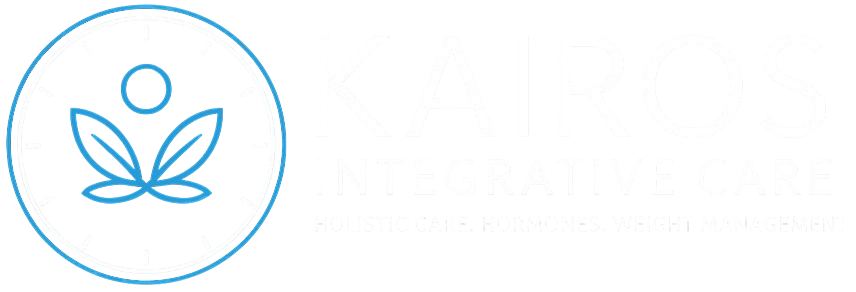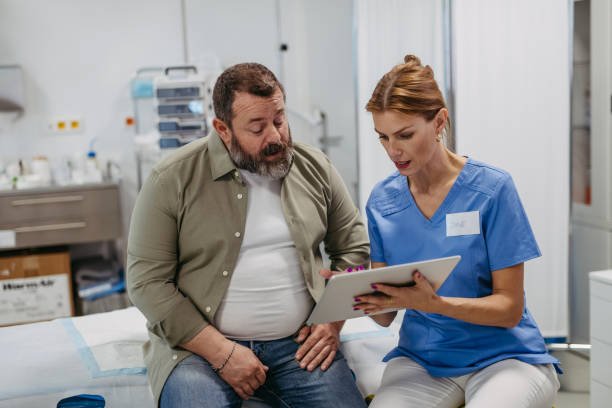If you’ve recently been told your LDL cholesterol is high, the first thought might be, “Am I eating too much fat?” But here’s the truth: high LDL isn’t always caused by your diet. For many people, the issue isn’t how much LDL the body makes, it’s how well it clears it.
LDL clearance is your body’s natural ability to remove cholesterol from the bloodstream. When that system isn’t working properly, LDL stays in circulation longer than it should. The longer it circulates, the more likely it is to become oxidized, trigger inflammation, and contribute to plaque buildup in the arteries.
That’s why at Kairos, we don’t just ask how much cholesterol you have, we ask why your body is not clearing it.
Understanding LDL Clearance
LDL cholesterol is often labeled as “bad,” but it’s not that simple. Your liver is supposed to clear LDL from your blood once it’s no longer needed.
But for some people, that process doesn’t work well. When LDL isn’t cleared properly, it stays in your bloodstream too long, making it more likely to get damaged, cause inflammation, and build up in your arteries.
This is why we look beyond the surface. We don’t just want to know your LDL level; we want to know what your body is doing with it.
Risks of High LDL Cholesterol (When It’s Not Cleared Well)
High LDL on its own isn’t always dangerous. But when your body struggles to clear it properly, the real problems begin. Here’s what can happen:
- Clogged arteries: Damaged LDL can stick to artery walls and lead to plaque buildup, restricting blood flow to your heart.
- Heart disease & heart attacks: Long-term poor clearance increases the chances of chest pain (angina), heart attacks, and other cardiovascular events.
- Stroke & peripheral artery disease: Plaque doesn’t just form near the heart; it can block blood flow in the brain or limbs, leading to stroke or PAD.

Your provider may use a risk calculator that includes:
- Your cholesterol levels
- Age and blood pressure
- Whether you smoke or take blood pressure medication
- Family history and conditions like diabetes
At Kairos, we consider all of these and more. Because your numbers tell a story, but so do your symptoms, history, and lifestyle. We want to lower your true risk, not just your lab printout.
Signs of Poor LDL Clearance
How can you tell if this is happening to you? Ask yourself:
- Do you feel bloated, sluggish, or foggy after meals, even healthy ones? This could be your body struggling to process fats and clear out cholesterol properly.
- Has your doctor ever said your “good” cholesterol (HDL) is low or your triglycerides are high? That’s often a red flag that your metabolism and fat processing aren’t working smoothly.
- Do you carry more weight around your belly despite eating well?
- Have you been told your liver enzymes were slightly off, even if you don’t drink much?
- Have you had hormonal issues like fatigue, low libido, or irregular cycles?
These symptoms often point to deeper metabolic issues, ones that affect how your body processes fats and clears cholesterol.
What We Look for in Labs
Once we’ve listened to your story, we dig deeper with labs that help us understand the root cause of poor LDL clearance:
High fasting insulin
This tells us if your blood sugar regulation is off, which can slow LDL receptor activity in the liver.
High triglycerides and low HDL
A classic sign that your body isn’t metabolizing fats well. Often linked to insulin resistance.
Low SHBG (Sex Hormone-Binding Globulin)
This hormone marker gives us insight into your liver health and hormone balance, both important for how your body handles cholesterol.
Elevated liver enzymes (AST, ALT, GGT)
Your liver plays a key role in clearing LDL. When enzymes are elevated, it may be under stress and not doing its job effectively..
Our Functional Medicine Approach to LDL Clearance
At Kairos Integrative Care, we don’t treat your LDL in isolation. We understand your cholesterol story by looking at your full picture: metabolism, liver function, hormones, and lifestyle. Once we understand what’s blocking your clearance, here’s how we support you:
Support insulin sensitivity:
A sluggish metabolism often blocks LDL clearance.. We help you rebalance blood sugar using fiber-rich, low-glycemic meals and nutrients like magnesium and chromium. Supplements may be added to improve insulin response.
Strengthen liver function:
The liver is your body’s cholesterol filter. We support it with detox and bile flow with nutrients like choline, NAC, and milk thistle. Lifestyle tools like walking after meals and strength training help reduce liver fat and inflammation.
Calm inflammation:
We calm the system with omega-3s, antioxidants, polyphenols, and a focus on deep, restorative sleep and stress management.
Move your body:
Regular walking, especially after meals, improves metabolic health and liver function, two keys to cholesterol clearance. We focus on sustainable changes that support your metabolism, rather than quick fixes or blanket statin recommendations.
Conclusion
If your LDL is high and nothing seems to be working, it’s time to stop blaming your diet and start looking at how your body is processing cholesterol.
At Kairos Health Integrative Primary Care, Lola, one of our Board-Certified Nurse Practitioners, uses advanced testing and functional medicine tools to uncover the real reasons why your LDL is elevated. We serve clients in Houston, Sugar Land, and surrounding areas 77046 & 77478.
Book your advanced cholesterol review today!




